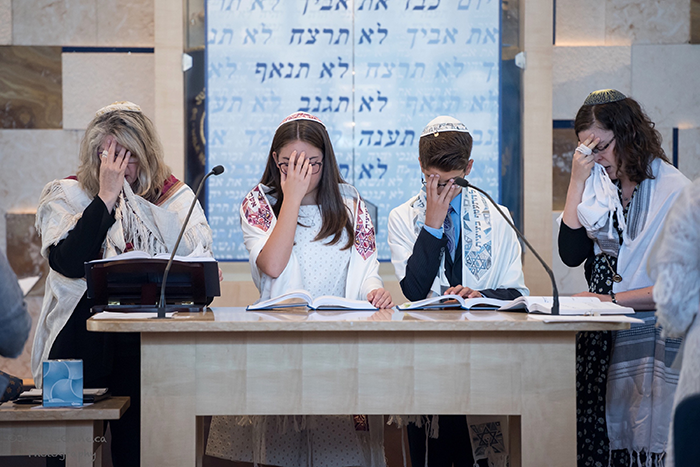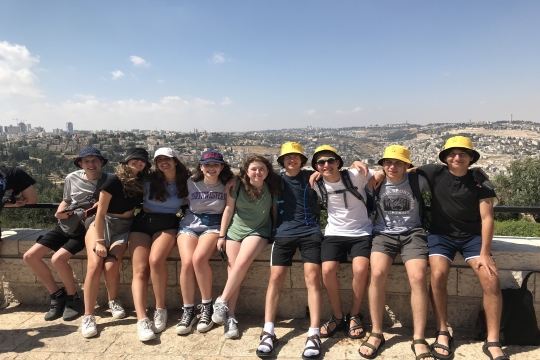Becoming Bet Mitzvah

Last June, Rabbi Jen Gubitz wrote an important post entitled “Becoming BMitzvah.” Rabbi Gubitz outlined why many synagogues across the country are adopting a more gender inclusive term to name the Jewish coming of age ceremony traditionally called bat or bar mitzvah. Many communities striving to be places of belonging are wondering which term to use in their congregations. There are so many options, how can a synagogue make a thoughtful and intentional choice around what term is best for them?
The two of us spent the past few months, along with members of the Central Conference of American Rabbis (CCAR) Worship and Practice Committee, researching, learning, and better understanding this very question. We were tasked with recommending a term that the CCAR Press could use in all their publications going forward. Ultimately, our committee recommended the term “bet mitzvah,” but there are many things to consider when choosing a term for your own congregation.
We hope to offer communities some questions and ideas that might help them make a thoughtful, intentional decision about what term to use. These are recommendations for a general term for the Jewish coming of age ceremony. A student might choose to use one of these terms as an expression of being non-binary. Many synagogues, including both of ours, ask each family and/or student to choose which term they would like to use for their individual ceremonies.
One of the first questions is whether you want a term that is Hebrew or English. Our committee determined that we wanted to honor the Hebrew language, so we chose a Hebrew term. Many communities, however, prefer the terms BMitzvah, BeMitzvah or B’Mitzvah, opting for an English term that may be more accessible to non-Hebrew speakers.
The next question is whether you want a word that sounds closer to the existing terms or is entirely new. We decided that a more familiar term would catch on more easily with a wider audience. Some of our options that used familiar language were bet mitzvah, brit mitzvah, and beit mitzvah. At the same time, we found some synagogues that had introduced new terms, such as Simchat Mitzvah (the happiness or joy of the mitzvah), Nefesh Mitzvah (the soul or embodiment of the mitzvah), and Kabbalat Mitzvah (receiving the mitzvah).
Finally, the term you choose should be truly inclusive and affirming of all gender expressions and identities. My (Rabbi Schultz’s) synagogue in Connecticut used the term B’nai Mitzvah for several years as our all-gender term. The term “b’nai” is the male third person plural. Because of this, not everyone may see themselves as included or belonging within this term. However, in Hebrew, “b’nai” is used to refer to a group of people who identify as male or a group of people of all gender identities. If you are using a Hebrew term, it may be helpful to consult a Hebrew expert or the Nonbinary Hebrew Project for advice.
Our committee recommended the term “bet mitzvah” (as in the Hebrew letter bet) for CCAR publications. This was the term that, for us, best met our criteria of using Hebrew, sounding familiar, and being fully inclusive of all gender expressions and identities.
The language we use is a statement of who we are, the values that we strive to live by, and the communities of belonging that we all seek to create in our Reform synagogues and communities. We hope these questions will help you make the right decision for your own circumstances.
Related Posts

A $3,250 Gift for Your B’nei Mitzvah Teens

Putting the Mitzvah Back into B’nei Mitzvah



